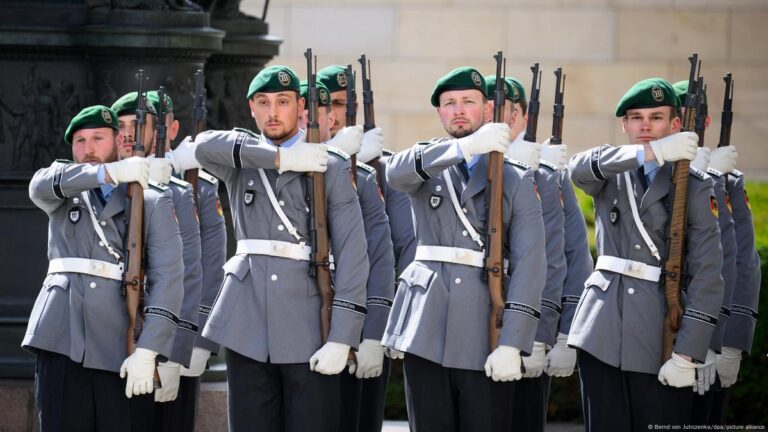The German cabinet has approved a proposal to reintroduce compulsory military service, marking a significant shift in the country’s defense policy. While the government initially supports voluntary enlistment, this move paves the way for conscription if recruitment targets are not met. The decision comes amid growing concerns over national security and evolving geopolitical challenges in Europe.
German Cabinet Endorses Voluntary Military Service to Bolster Armed Forces
The German government has taken a significant step towards strengthening its military by approving a proposal that promotes voluntary military service while keeping the possibility of conscription open. This strategic move aims to address rising security concerns amid evolving global threats and ensure that the country’s armed forces remain adequately staffed and prepared. The plan is centered around offering attractive benefits and flexible service terms to encourage recruitment, rather than imposing mandatory conscription immediately.
Key components of the proposal include:
- Expanded voluntary enlistment programs targeting young adults with incentives such as education grants and career training.
- Preservation of conscription laws as a contingency measure, allowing swift enactment if the voluntary system falls short.
- Enhanced support for reservists to maintain a robust and ready defense force.
| Category | Current Status | Planned Changes |
|---|---|---|
| Voluntary Enlistment | Limited incentives | Expanded benefits package |
| Conscription | Suspended since 2011 | Retained legally for emergencies |
| Reservist Support | Basic provisions | Increased training and resources |
Analyzing the Potential Shift Toward Conscription Amidst Security Challenges
The German cabinet’s recent endorsement of voluntary military service signals a strategic pivot in national defense policy, reflecting mounting concerns over regional and global security dynamics. While the move stops short of fully reinstating conscription, officials have left the legislative door open for compulsory service, should the nation’s security environment deteriorate further. This decision underscores a pragmatic approach to military readiness amid escalating geopolitical tensions, particularly in Eastern Europe and the Baltic region.
Key factors influencing this potential shift include:
- Rising border threats: Increased military activities near Germany’s eastern frontiers necessitate a more robust defensive posture.
- Manpower shortages: Voluntary enlistment rates have plateaued, raising questions about sustained operational capacity.
- Public and political debate: A growing discourse on the balance between civil liberties and collective security.
| Aspect | Current Status | Potential Change |
|---|---|---|
| Military Service Type | Voluntary | Possible conscription |
| Annual Intake | ~25,000 recruits | Up to 50,000 with conscription |
| Duration of Service | 6-12 months | 12 months minimum |
Recommendations for Policy Implementation and Public Engagement Strategies
To ensure the smooth implementation of the proposed military service reforms, policymakers must prioritize clear communication and inclusive dialogue with the public. Transparent timelines, detailed explanations of the benefits, and addressing concerns about conscription can build trust and mitigate resistance. Collaborating with community leaders, educators, and civil society organizations will foster diverse perspectives and create more effective campaigns tailored to different demographics, particularly the youth who stand at the forefront of this change.
Public engagement strategies should leverage both traditional media and digital platforms to maximize outreach and participation. Encouraging interactive forums and online Q&A sessions can provide citizens with direct access to decision-makers, enhancing accountability. Below is a concise framework that outlines key engagement activities and their expected outcomes:
| Engagement Activity | Purpose | Expected Outcome |
|---|---|---|
| Community Town Halls | Facilitate face-to-face dialogue | Strengthened local trust and feedback loops |
| Social Media Campaigns | Broad awareness and myth-busting | Increased public support and informed debate |
| Educational Outreach | Inform students and young adults | Higher participation interest and reduced uncertainty |
The Way Forward
As Germany’s cabinet endorses the introduction of voluntary military service with an eventual pathway to conscription, the government signals a significant shift in the nation’s defense policy. This move reflects growing concerns over security amid evolving geopolitical tensions, reigniting debates on the role and structure of Germany’s armed forces. The decision now heads to parliament for further deliberation, where lawmakers will weigh the implications for both the military and society at large.




